Ryrkaypiy: Far-north Russian village overrun by polar bears
- Published
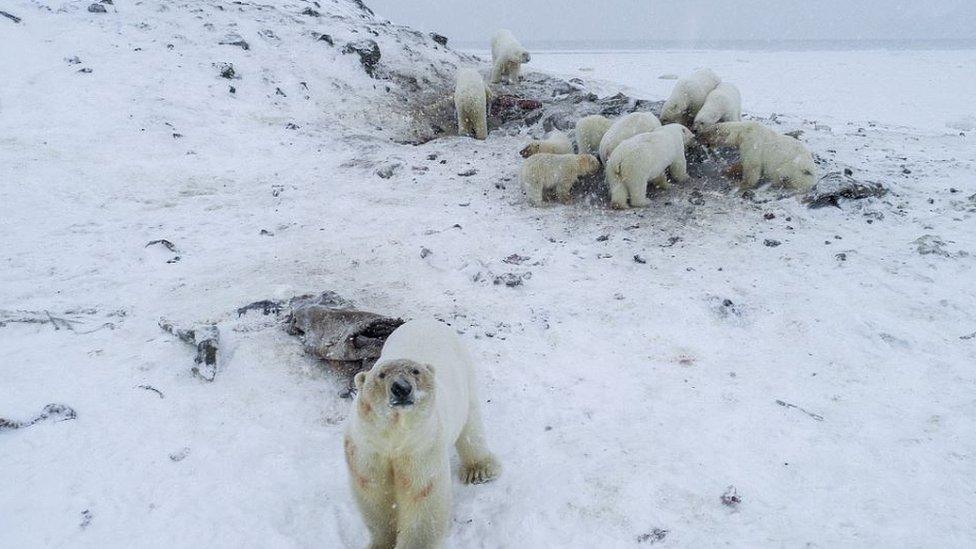
Conservationists counted 56 polar bears near Ryrkaypiy, including cubs
More than 50 polar bears have descended on a village in Russia's far north.
All public activities in Ryrkaypiy, in Chukotka region, have been cancelled, and schools are being guarded to protect residents from the bears.
Conservationists say climate change could be to blame, with weak coastal ice forcing the bears to search for food in the village rather than at sea.
Other experts have said polar bear visits are now so frequent, Ryrkaypiy should be permanently evacuated.

Tatyana Minenko, head of Ryrkaypiy's bear patrol programme, told Ria Novosti that they had counted 56 polar bears in the village.
The animals were "both adult and young... there were females with cubs of different ages", she said - adding that almost all of them appeared to be thin.
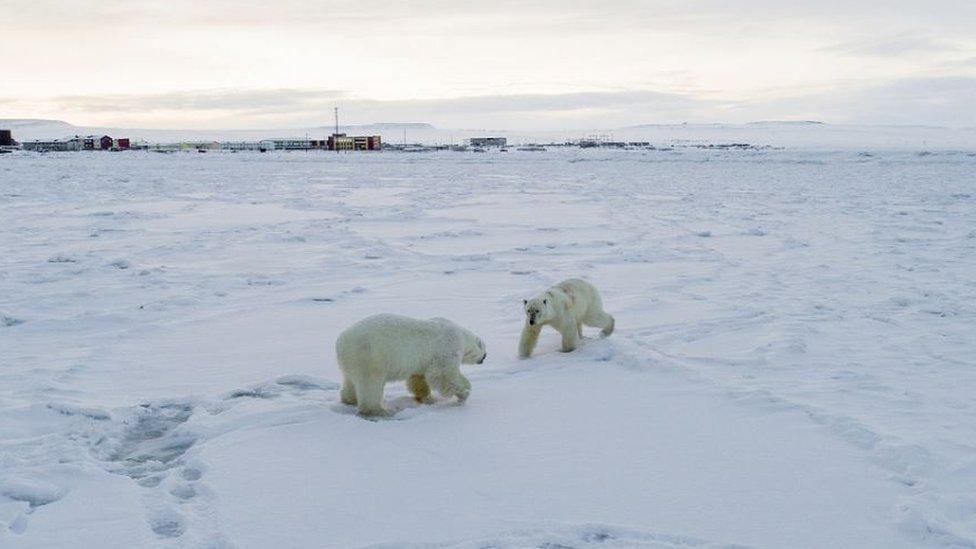
The polar bears have been getting very close to the village
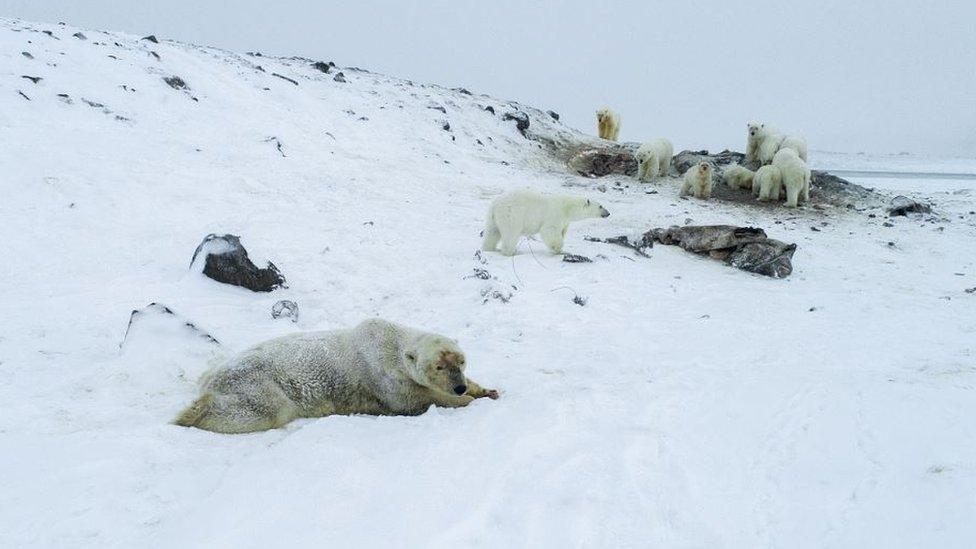
One expert recently suggested permanently evacuating the village because of the frequency of polar bear visits
The polar bears normally live on Cape Schmidt, just 2.2 km (1.4 miles) from Ryrkaypiy. WWF conservationist Mikhail Stishov said the area had been experiencing unusually warm weather.
"If the ice were strong enough the bears, or at least some of them, would have already gone to sea, where they could hunt for seals or sea hares," he said.
While waiting for the ice to freeze they are drawn to villages for food, Mr Stishov added.

You may also be interested in:
In February we asked: why are polar bears invading human settlements?

Last week, a polar bear specialist from the Institute of Biological Problems of the North said the bears now visit Ryrkaypiy so often that the village should be evacuated, and its roughly 700 residents resettled.
Anatoly Kochnev told Tass news agency that polar bear visits are increasingly frequent - and that just five years ago, only about five bears got close to the village.
"I as a scientist believe [Ryrkaypiy village] should not remain there," he said. "We try to control the situation, but nobody would want to think what may happen there in three to five years."
The region's animal protection official Yegor Vereshchagin told Tass that if residents wished to leave, "they could organise a referendum".
- Published3 December 2019
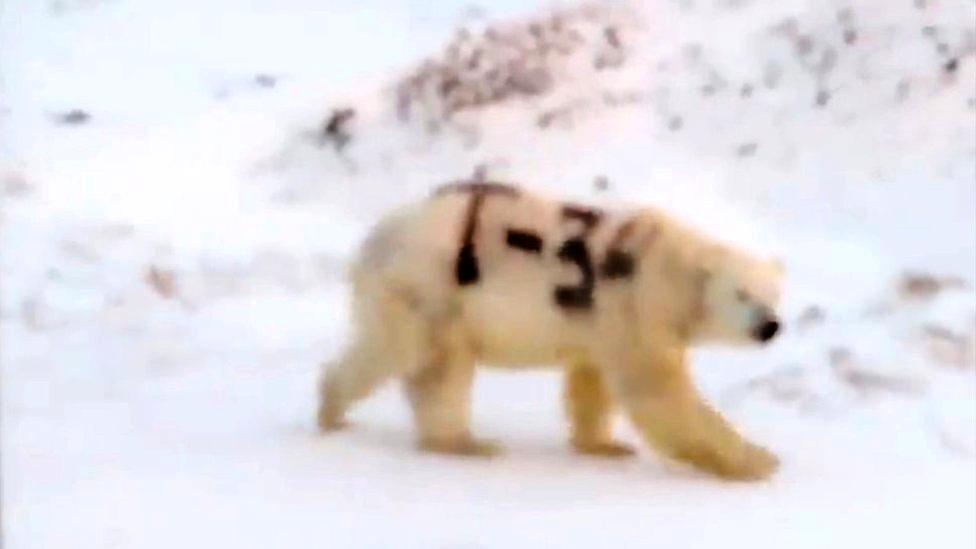
- Published1 October 2019
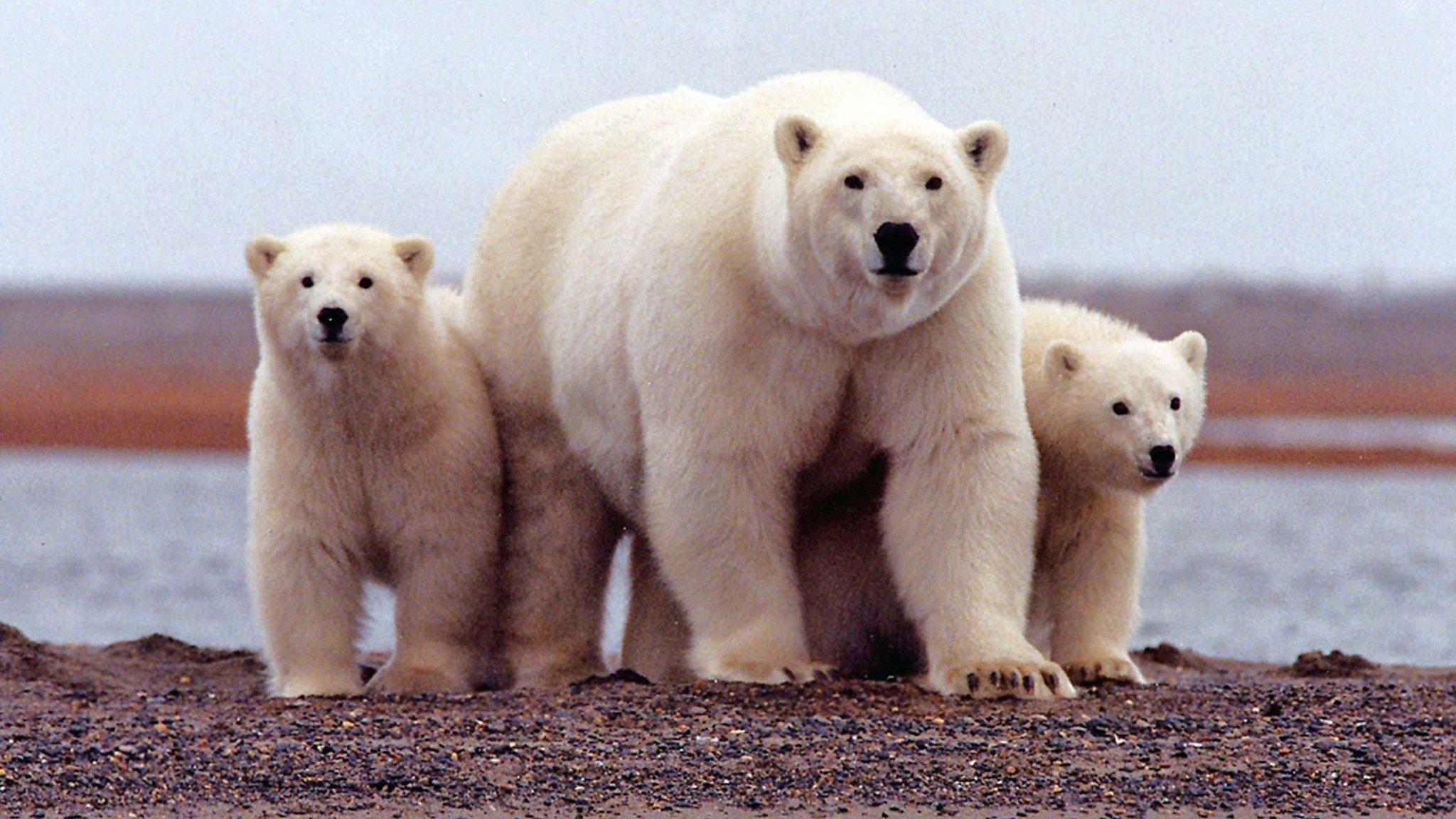
- Published11 February 2019
